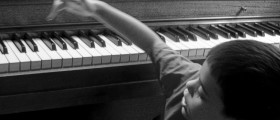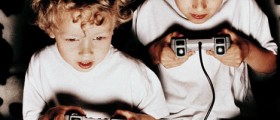
Attention deficit disorder is a condition which mostly affects children. However, when left untreated, it can stay with a person throughout his/her adulthood. ADHD manifests through a child's inability to sustain attention, combined with a tendency towards hyperactivity and impulsive behavior. Additionally, the child may suffer from lack of self-esteem, incapability to maintain relationships and low-level performance at school.
The treatments for this condition mainly consist of medications which do little to solve the problem, but much to keep the symptoms at bay. However, through behavioral modification and psychotherapy, a child can successfully overcome this condition, growing up without ADHD.
ADHD Tests and Diagnosis
Since there are no specific tests designed for diagnosing this behavioral problem, parents are advised to gather as much information as they can, related to their child's conduct. This will help doctors and psychologists create a proper profile of the child, developing adequate treatment technique.
Initially, during the first session with the therapist, your child will have to answer a number of questions regarding overall health, medical history, behavior, problems and reactions in certain situations. Since children with ADHD have problems concentrating and focusing on writing, reading, playing board games and similar activities, these matters are also taken into account during diagnosis.
The Criteria
A child has ADHD if he/she often makes careless mistakes in school and does not pay attention to details, having a short attention span during games and activities. Additionally, he/she does not appear to pay attention while being spoken to, not doing homeworks or obeying orders regarding school tasks or chores at home. These children do not like demanding activities and mental engagement; they often lose toys and items, getting distracted easily.
Also, they tend to play with their hands and limbs nervously, being restless and almost incapable of staying calm and relaxed. They may talk excessively or give out answers before being asked completely, interrupting people commonly. All in all, children with ADHD behave different from other children and show symptoms of this disorder even before the age of 7, lasting for at least 6 months, being either hyperactive-impulsive or inattentive or a mixture of both.
False Diagnosis
ADHD can often be mistaken for learning or language issues or mood disorders such as depression. Also, seizures and anxiety problems tend to be misdiagnosed for ADHD. Sometimes, all that is bothering a child suspected to have ADHD are visual or hearing problems, Tourette syndrome, sleeping disorders or medications, especially those for thyroid problems.
Thus, doctors and therapists should be very careful once observing the symptoms of a child, so as not to give incorrect diagnosis.

















Your thoughts on this
Loading...